The pendulum that for so long was static has started to swing.
Photography by Paul-Etienne Luca
Global Brand Ambassador: Kee Chang
You’d be forgiven for not remembering Hugo Diego Garcia, or what exactly it is he did, in Coralie Fargeat’s The Substance. Do you recall his character’s sharp-tongued misogyny? Perhaps it was the insert of his bare ass, up close and personal, which discombobulated you. Let’s face it: it was the briefest of roles in an otherwise incredibly loud movie. Simply credited as “Diego – Boyfriend,” he was destined to be forgotten. But the truth is, that role you forgot betrays his mind-blowing talent.
Garcia’s story begins in Belleydoux. Tucked away in the southern reaches of the Jura Mountains is that secluded village where limestone cliffs drop into lush valleys and high meadows roll toward the horizon. It is this edge of France’s alpine frontier that Garcia called home before he crossed the pond—by way of Oyonnax, Lyon, and Paris—to Los Angeles to chase his filmmaking ambitions.
Now, Belleydoux marks the point of his return. It is the backdrop of Vache Folle, a wildly impressive feature debut in which he stars, and wrote and co-directed with Lorenzo Bentivoglio. The film tells the story of Cédric Poncet, a man irreparably broken by his past, and by war, and whose desperation grows as he attempts to win back his daughter and ex-wife from a hostile rival.
Anthem connected with Garcia to interrogate his art and life story, and for a photoshoot in Paris.
Vache Folle is currently in its festival run.
Hugo—I wasn’t at all prepared for Vache Folle. And I think this is something you’ll relate to: normally, when someone sends you a link to a movie they made, it inevitably becomes a huge chore you want to put off for as long as possible. Because it’s rarely remarkable, right? But your film floored me. Your endeavor is all the more impressive knowing what I know now. It took a lot to get here. How does it feel to finally be able to share your vision with the world?
It feels good, man. It did take a lot. And I feel relieved, too. We can finally start a new chapter. The film is being released now in my early 30s, but we started five years ago so it’s a reflection of my mid-20s. We kept shaping it, playing with the raw material that carried the spirit of that time.
And yes, a hundred percent—we’re all creatures of bias whether we like it or not. If something lands on your lap from nowhere, chances are, it sucks. I wouldn’t expect much either. I’m glad you were able to get past that.
You had the first special screening of Vache Folle at St-Jean-de-Luz International Film Festival a few weeks ago. How was that?
It was grounding. It’s something we rarely get in this line of work because cinema isn’t live performance. In the process, there’s no direct contact with the public. No instant pulse. So when you finally sit there with them—see the lights go down as the silence spreads and feel that collective breath—that’s powerful. That direct, unfiltered exchange is rare and energizing. It’s essential for us that this film be seen in a movie theater, more so because of its formalism. A sacred quality gets lost at home on a TV, or worse, on a laptop, or worse still, on a phone.
Vache Folle will also be competing at Tallinn Film Festival — PÖFF, and playing at Mar del Plata as part of its Official International Competition. And I hear there’s more to come. This is a pivotal moment for you on the festival circuit.
Definitely. Selections matter. It’s not everything, but it helps to filter. It’s not about what they teach us about the film or ourselves. I know what we did. I know what we put in and what it’s worth. But festivals exist to support and showcase new voices, to offer chances to outsiders, to give you credibility, and to generate buzz. They are curators. For a film as outside of the system and radical as ours, that support is crucial.
You’re the film’s star, producer, and co-director. Crucially, you also wrote the screenplay. This film is deeply personal to you. Your character, Cédric, although not entirely autobiographical, is still a window into you. In Cédric, I think we can find out a lot about who you are and where you come from. Where do you draw the line between the reality and fiction of him?
Cédric is indeed a version of me, but under different circumstances. We’re cut from the same cloth, yet shaped by different environments. We inhabit distinct socio-economic backgrounds, even if we grew up in similar worlds. So that’s where the difference lies. Like Cédric, I grew up in the countryside. Like Cédric, I’ve fucked up and gotten into trouble at times—although not as deeply as him. We share the atmosphere of those villages: bal des pompiers, the hunters, Pari Mutuel Urbain, the drinking, and the long days where nothing happens, you know? Kids drifting, wasting time, making trouble, and that whole rural iconography—tractors, motocross, cheap liquor—is a vibe that translates well on screen.
What really sets us apart is what I had that he didn’t: access to education, family support, travel, and a wider horizon. That changes everything. Also, Cédric has a screw loose—way more than me. Hence his nickname: Vache Folle, or Mad Cow.
Let’s talk about this title. Vache Folle is a slur his rivals use against him. They hurl it as an insult, insinuating that something happened to him at war and he didn’t return the same.
Exactly.
But you also wonder if there’s an underlying condition behind his motor tics. Is he suffering from BSE [a neurological disease in cattle that can lead to a fatal human brain disorder]?
Just to be clear, he’s not literally sick. And he’s damaged, but not insane. Vache Folle is a nickname he’s had since he was a kid. He’s the son of a butcher. He grew up around cattle. He’s always had small tics that made him a bit “off.” So they called him that, which stuck. The war and his time in Africa only worsened his existing trauma. Originally, there was another layer to this: his parents lost their butcher shop during the BSE outbreak, the mad cow crisis, in 1996.
Do you have army experience yourself? What inspired that part of Cédric’s backstory?
I never served, and it’s not my thing. War only fascinates me in the realm of fiction. I read about it constantly, maybe because it’s something I can’t fully wrap my head around. In reality, it deeply repulses me. The military as a system is fascinating to observe, though. The discipline. The aesthetics of it. Again, in real life, I keep my distance. I just don’t see it in that same way. But I can still admire certain aspects of it. I respect people who join with genuine conviction. Some members of my family did serve, including someone close to me who partly inspired Cédric.
I have limited understanding of this, except to say that the French Foreign Legion is what allows foreign nationals into service. And I only recently learned that French citizens can be legionnaires, too. In any case, I thought Cédric’s involvement in the Legion might suggest a mixed background. I thought he might be part Spanish, mirroring your own lineage.
Cédric is purely French. Pure terroir. The Legion is interesting because it lets foreigners in and lets anyone start over. That’s its whole spirit. If you commit for real, you can erase a “troubled” past. There’s a real screening process, though. If you’re able to make amends for less serious crimes, you’re in. You can even earn French citizenship after serving for a few years, or through a battle wound. Cédric had a chaotic adolescence. He made mistakes. So the Legion fit him well. And in France, the Legion is its own separate thing from the army. It has its own mythology and demands its own respect. A legionnaire is seen as a man of weight with street cred—they have this aura.
I’m curious to know more about your ancestral background.
I’m a true European hybrid, born of migration. I come from French rural farmers and miners, Italian immigrants, and Spanish Republicans who went north in search of work and a better life.
My maternal great-grandfather was a maquisard in the Ain–Jura region who fought against the German occupation under the name Zamor. He later married an Italian woman. On my dad’s side are the Spanish Rojos who fought against Francisco Franco in the Civil War before heading straight into World War II. My great-grandfather José was imprisoned in the refugee camp of Le Vernet in Ariège around 1940, alongside writer Arthur Koestler, who would later recount this experience in his memoir Scum of the Earth. So they were there together, sharing the same barracks. It’s one of those quiet intersections of history where lives briefly overlap. What fascinates me is how these threads unknowingly connect to the writers I’ve always admired: Hemingway, who covered the Spanish War, and Koestler, who lived through exile and turned it into literature. Interestingly, I became an immigrant myself—under much easier circumstances.
Immigration. Crossing borders. Going out into the world. It’s a through line. In Vache Folle, you feel an intense yearning for escape in almost every step of Cédric’s journey. He wants to run from the mistakes he’s made. He wants to run from the trauma of war. But there is also the physical place that surely feels limiting for someone who’s really wild at heart. Is this how you felt growing up in Belleydoux, up in those mountains, dreaming about moviemaking?
Cédric naively thinks that moving away will cure him and fix his relationships. But that’s an illusion, as real change comes from within. The only place he can’t escape is his own mind—his own trauma. There’s also this paradox in the movie: he tries to escape a place that could be considered paradise. The scenery in which he lives, the nature, is astonishing. It’s humans that make it difficult—crime, betrayal, violence. The ugliness of it all. So he moves, but the cycle starts again.
As for myself, yes, I always longed to escape. Not because it felt like hell, but because nothing could really grow out of there. Cinema and books programmed me early. I fell in love with America in images, especially California as it’s depicted in the movies. That whole iconography from Grease, Rebel Without a Cause, Point Break, The Karate Kid, or Pulp Fiction. I also knew it was a place where you can make things happen—that’s what America is about. I knew early on that part of my life would take place there.
Tell me about the films that “programmed” you. What shaped you from the ground up?
At the core are the American masters from the 70s: Cimino, Spielberg, De Palma, Scorsese, and Coppola. And Leone, too. That is my foundation. What’s remarkable is how brilliant yet accessible their films are. These are big emotional stories that anyone can access. They established the touchstones of genre that are still part of our culture. I was also a real anime and manga fan, which shaped my taste just as much.
I was never a New Wave kid or the artsy, intellectual type. I was more mainstream as a kid in taste. Cartoons and junk food. Whatever was around. I discovered French Realism much later. In the meantime, I’d watched everything else: American Pie and comedies, Bruce Lee and most kung-fu movies, horror slashers, documentaries, music videos, mythologies—anything I could get my hands on. I was building my taste.
I also grew up on the massive Hollywood epics from the 90s: Michael Mann’s The Last of the Mohicans and Heat, Kevin Costner’s Dances with Wolves, Mel Gibson’s Braveheart. And then came the early 2000s: Gladiator, The Last Samurai, Apocalypto, Troy, The Patriot, and of course The Lord of the Rings—the kind of films that shaped a generation and proved that cinema could be both grand and emotional. Then I went back in time again, rediscovering De Palma, and revisiting Spielberg and Scorsese.
Later, a new wave of International auteurs would shape me just as much: Aronofsky, Soderbergh, Iñárritu, Paul Thomas Anderson, Fincher, Villeneuve, Nolan, Tarantino, Refn, Kubrick, Dolan, McQueen… So many. These are filmmakers who managed to stay radical and innovative and personal yet inside the system.
As for wanting to direct, I guess that came in two concrete shocks: Refn’s Drive and De Palma’s Scarface. These are heavy films built on mood, atmosphere, and score. They are the kind of movies that stay under your skin more through feeling than plot.
Romain Gavras and Kim Chapiron were key as well, as far as French influences go.
What was influential in shaping Vache Folle specifically?
For Vache Folle, there weren’t direct influences. The project is a hybrid, born from my experience, mixed taste, and from real-world constraints. But for this exercise, if I had to name anything, in terms of spirit, I would say First Blood [Rambo] for its wounded masculinity, Pusher for its raw energy, American Honey for its sense of freedom, Bullhead for the flesh and the guilt, and La loi du marché for its Social Realism. Ultimately, Vache Folle was made with what was within our means.
You’ve said that, for a long time, moving to Hollywood, let alone going into film at all, was inconceivable. But you ultimately made that leap. Was it straight to LA from Belleydoux?
It was by parallel via Oyonnax, Lyon, and Paris.
Oyonnax wasn’t really pretty, nor was it great to live in, to say the least. There is nothing for you after high school in Oyonnax. After I graduated high school, I went to Lyon to study law. On the side, I took acting classes. Then I moved to Paris, and it was rough. I soon prepared myself to move to the US.
I would think that law school complicated your journey further. Was it your parents’ idea?
Yes, and it sucked. I was drifting. When you don’t choose, life chooses for you. Law felt meaningless—just reading codes all day and watching as life passes you by.
So you chose to course correct.
Yes. During those years, as I was watching movies, the gears in my head were turning quietly. One night changed everything. It was a crisp autumn night in Lyon. Walking out of Drive with a friend, we stopped on a bridge over the Rhône, speechless. The city lights trembled on the water. The air was cold and quiet. That was the moment I decided to give my life to this art—to become an actor. I was looking for meaning, for a vehicle to express myself with. Out of ego, too. And yes, for a woman as well. All of that in the same bag. So after validating my useless diploma, I left law school and changed my plans. I was also about to go professional in boxing with France’s best coach, Fayçal Omrani, but decided that a career in art suited me better.
You made a huge leap of faith in a totally different direction. That’s no small thing.
At that time, it felt insane, and mostly to the people around me. Today, it still sounds crazy, but at least there are more paths. You can put yourself out there by growing projects and building traction online. Content creators are a thing. In 2013/2014, social media was just starting. There were far less chances to be discovered. You had to physically move to a place and start from scratch.
I still went. The hard part was knowing I was stepping into a fool’s venture and going anyway. Even then, I could see both sides: the absurd odds on one hand, and the belief it could work on the other. The people around me mistook my resolve for recklessness, but in truth, I always saw every risk with brutal clarity and went anyway. There was the belief, deep and irrational, telling me I could.
Twelve years later, it’s still demanding. I’m still light years from my goals. But now it’s concrete and doable. There’s movement, there’s a path. There is a wave to ride. The hardest part is breaking inertia. The pendulum that for so long was static has started to swing.
You first came on my radar with your brief role in The Substance. I’d been completely in the dark about your filmmaking credentials previously. As far as I knew, you were simply an actor. How did you land that role? Did you have any idea it would become such a big movie?
It was by total accident. It was through a random self-tape I made while living in LA. They wanted a European who worked locally and could sound American. This is what I gave on the self-tape: full accent, a beard, long hair. I didn’t know anything about the project. Then right before shooting, I shaved my head for Vache Folle pick-ups and almost lost the part because of my new look. The worst part is, I didn’t care. My film came first. But they kept me, and I’m glad they did.
On my first day on set, they told me to get naked. I was confused. So I checked the script again, and it was right there. So lesson learned. Always read carefully. Two years later, my agent texted me: “Congratulations on Cannes.” I had no idea what she was talking about. A month later, I’m at Cannes, watching the film with everyone for the first time, sitting in a seat initially reserved for James Franco. The screening starts. At one point, the whole room turns white—the light reflecting off the biggest close-up of a naked hairy ass ever projected. Surreal.
That is wild and hysterical, especially considering how, at this juncture in our professional relationship, I see you much more as a full-blown filmmaker. Not to box you in—you can clearly do it all. Is there much of a divide between your filmmaking and acting ambitions?
I don’t see a divide. Language creates the illusion of there being one. It programs limits in us. “Actor,” “director,” “writer”—the moment we use these words, you’re already in a box. Words shape reality and influence belief. For me, it’s one single movement. It’s imagining, writing, producing, filming, performing, editing, and refining all the way through. I want the full cycle. I want to sit in front of a blank page and invent a world. I want to live it in my mind first, and then physically, viscerally, with all of my senses, as an actor. I want to shape it in the cut. It’s about the immersive experience from every side—before, during, and after.
Before we move on from this, did The Substance open any doors for you?
It opened a few unexpected doors, including this conversation. It’s funny how a few seconds in a big film can resonate more than entire roles elsewhere. When I booked my first series regular job, I really thought that was gonna be it. I thought it was the break I was waiting for all my life. It was directed by Mark Webb, and also starred Mandy Patinkin and Violett Bean. We shot that for six months on a big budget. Then it got released to zero fanfare. Nothing. That was a tough pill to swallow.
A month after that release, I received the text from my agent about The Substance going to Cannes.
I think you were just 20 years old when you arrived in LA. Tell me about those early days.
When I landed, I had nothing. No degrees, no credits, no network, poor English, papers barely in order, little money, and a boyish physique that didn’t help. I lived in Venice with five girls. Those first years were a desert—long stretches of nothing and a handful of auditions. I wasn’t doing well in classes. The auditions went nowhere. I never liked classes or castings. They always felt off. I thought, “Why does no one see what I’m capable of?” I knew I could act, or I wanted to believe that I could. I was that convinced I had something to offer and that everybody else was blind to it. I was convinced that I could portray characters truthfully. At some point, I decided to give myself a chance since nobody else was willing to. I decided that the best way forward was to create something important and meaningful for myself. It was a giant task, but rooted in what I knew: my father’s violent and complex life in the ‘80s imposed itself on me. It would be a French period hood story on the scale of a tragedy, with a Scarface undertone set in our rough industrial town. I raised money and launched into a project that felt enormous back then: my very first short film as an actor-writer-director, Tony. In three years, I’d written and directed three projects. They were rough and imperfect, but they taught me so much about cinema. But mostly about myself, my strengths, my message, and my style. And I met my team.
In the director’s statement for Vache Folle, you bookend your LA chapter from age 20 to 27. What happened at 27?
It was the pandemic. Life changed. Our group in LA broke apart. Some of us went back to France. I stayed with Jordan [Evrard], my best friend, manager, and a real film buff. We watched everything we could. I wrote several specs. Eventually, I had to move back to France as well, broke and heartbroken—going through the breakup that every man needs to at some point. With nowhere to live, I ended up at David’s [Zivko] place. He plays Zlatko in Vache Folle. Lorenzo [Bentivoglio] joined, too. We lived a spartan but creative life in Cédric’s actual house. We cut wood for the stove every morning, boxed and trained, worked on a short, talked cinema, and built ideas day and night. During this period, I wrote Vache Folle in a month. It was a cathartic experience. Whatever resources I could access became part of the script. If someone had a car or a barn or a particular look, I’d include it and write it in. On one cold February night, in front of Cédric’s broken chimney, I asked David and Lorenzo if they were game to make a feature. I dropped the name: Vache Folle. David became the de facto line producer. Lorenzo became the co-director, and also took on camera and DoP duties. The next day, we bought a camera with our meager savings and kicked off an insane adventure that lasted years longer than we imagined.
These are collaborators that you call brothers. There is also Malo [Garcia], your literal brother—an electronic artist and a composer. How do you all compliment one another?
Lorenzo is truly one of a kind. We met years ago when I was looking for someone to play my father’s best friend in Tony. In hindsight, it was kind of meta casting him to play that role. I picked him based off a few seconds of a short he’d been in. He had that rawness. That truth. When we met, we clicked instantly. A real bromance. At first, I thought this charismatic motherfucker was just a great actor, but he also happened to be creative and talented in every area. Since then, we’ve worked together on everything. And he always kills it as an actor, including in Vache Folle.
I asked Lorenzo to also co-direct Vache Folle because the project was too intense to handle alone since I was in every shot. He knew me deeply, and he’s a natural director—sensitive, patient, precise. He took charge of the image, camera, light, focus. After months on set, it became like a dance between us. Instinctive. Wordless. He’s not just a partner, he’s family.
As you know, my brother Malo composed the film. The score is essential. It’s almost a character in itself. The music follows Cédric’s madness, pulling us inside his psyche. Coming from his brother, I know this will sound biased, but he’s a genius. Time will prove that. He is probably the most gifted young composer I know. He’s pure creative force. He’s a machine when it comes to work, and he expects as much out of you as he does in himself. For the film, he wrote the score, composed it, and had it performed by incredible violinists from the London Conservatory. I’m proud of this soundtrack and the work he put into it. It’s one of the film’s strongest assets.
Jordan’s the producer and my childhood best friend. We’d shared the same babysitter since age 3, literally in the hood that’s featured in my first short film. We’ve been through a lot together. He’s also my manager. The sharpest critic. A very creative mind. Overall, he’s one of the most intelligent people I know.
And another big up goes to David, a talented and smart writer, and an actor with a real gueule. He’s a fighter who helped make this movie possible.
Working with them is everything to me. Without them, all of this would lose taste and meaning.
As for you, I say this under no uncertain terms: this is one hell of a performance. I don’t say it often. It’s similar to watching Matthias Schoenaerts in Bullhead for the first time. I went out of my way to meet with him, like I’m with you. What was your biggest challenge overall?
Thanks, man. The hardest part was directing while being in character. It requires double the energy. You can’t lose focus for one second. As a director, you carry the whole project. You are constantly aware of everything, every problem. But as an actor, you must let go. It’s a tough balance. That’s why Lorenzo was so key as the co-director. Without him, it would have been impossible. He was there to direct, give me feedback, and push me when needed. Jordan, Malo, and David helped, too, of course. But it was still draining. We shot for months, on and off. No rest. Constant tension and pressure— financial, organizational, casting, etcetera.
As a character, Cédric is tricky to play. He seems simple, when in fact he’s layered. He’s damaged. Alone. Tender, then hard. Clever yet very naïve at once. He embodies a touch of the Forrest Gump oddness, twisted by war. We avoided caricature and PTSD clichés, which we’ve seen too many times. It’s a fine line.
On a positive note, though, we had freedom. There was total trust between all of us. Sometimes, it was just Lorenzo, the sound guy, and me in a car or a room together.
Since I wrote it, Cédric came from within. I knew him inside out. The preparation was already done in my subconscious.
Vache Folle is, among other things, a love story. The backdrops are gorgeous to look at. There’s poetry and feeling in it that makes it lyrical. But overriding all of that in many ways is its very masculine energy. That starts with you. You’re a boxer. Do you see the correlation?
Absolutely. The film is masculine. Our crew was mostly men. But we also wanted poetry and sensitivity amongst the raw energy. They coexist. It’s important to note that there was female presence, too. Victoria De Beaujon—a future director—was our sister in the crew. There are the two actresses, Laure [Valax], the female lead who played my ex, and Emmy [Decastro], who played my 8-year-old daughter. They’re great.
Boxing is life’s metaphor. It was Hemingway who said, “My writing is nothing. My boxing is everything.” He was right. Boxing teaches discipline, pain, and patience.
In the film, Cédric dreams about acquiring a camper van to drive out to sea. Would it be a stretch to say that Vache Folle is your camper van? It’s your vehicle in which to, hopefully, bring about more opportunities. It signals freedom for that boy growing up in Belleydoux.
That’s not a stretch. It’s an astute observation. It is my vehicle. At once, it’s a passion project, a calling card, a cathartic experience, and an ordeal. At first, it was just something I needed. Over the course of almost five years, it became a transformative adventure. Lorenzo and I even edited it ourselves. We put thousands of hours into it.
The deeper truth is this: you think you have to prove something to the world, when in reality, you had to prove it to yourself all along. That’s what Vache Folle did for me—and for all of us. Now it stands complete, and people can get a glimpse of what’s coming next. The plan is simple: keep going our way. Create our favorite films. The ones we want to see.
We loved the freedom on Vache Folle, but now it’s time to scale up. We want to make uncompromising films that are visceral and emotional and complex yet entertaining.
Tell me about Karanta Zero, your production company. Who’s involved in its operations?
The four of us: Lorenzo, Malo, Jordan, and me. It’s both a production company and our group. So it’s a gang, a clan, a collective. We share a vision, a core style, but we have our individual voices inside of it, too.
Where did the name Karanta Zero come from?
I can’t explain it—it’s a secret. Let’s just say that it traces back to a character named Hung. And for us, it means that truth will prevail. The good guys win.
And what’s next for you on the acting front?
I’ll be starring alongside Ester Expósito in the companion films, Marfil and Ebano. Think romance/thriller with a 90s style à la The Bodyguard.
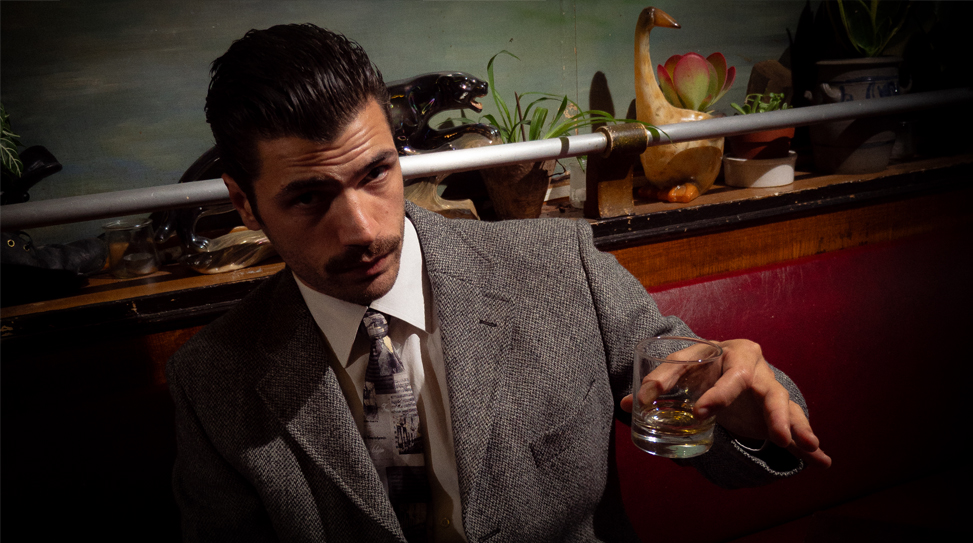

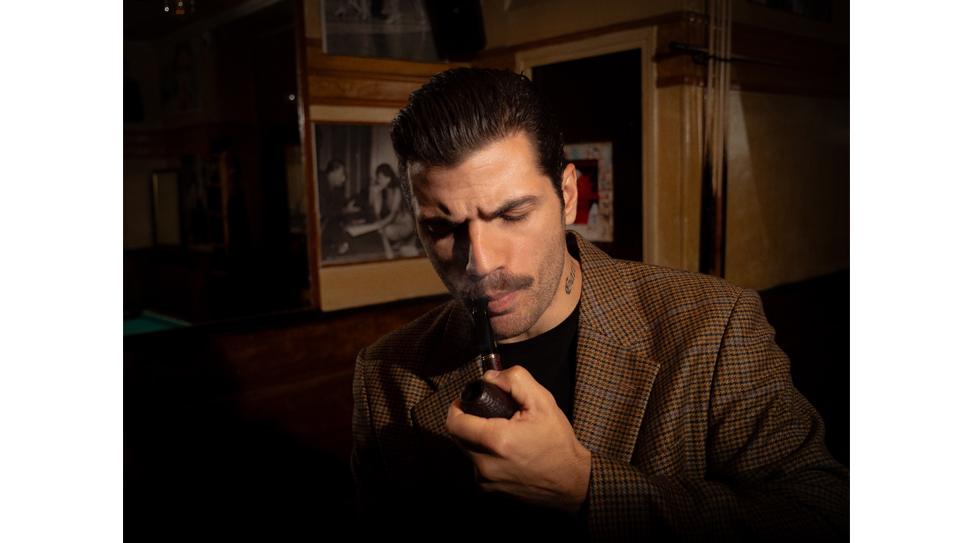
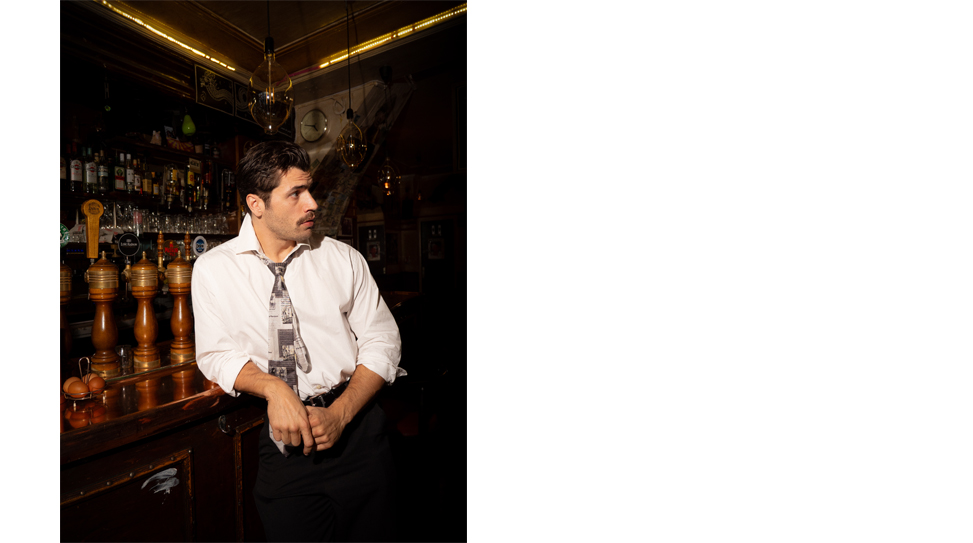
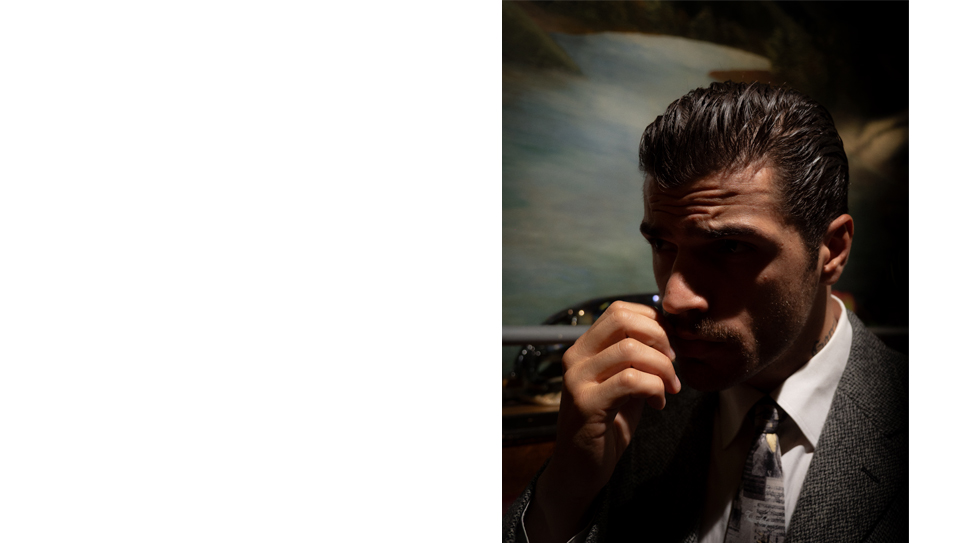
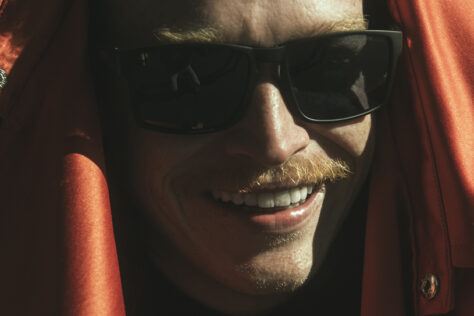 Let the Right One Win
Let the Right One Win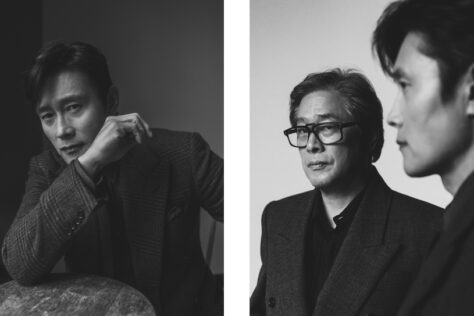 Endangered Species
Endangered Species
No Comments